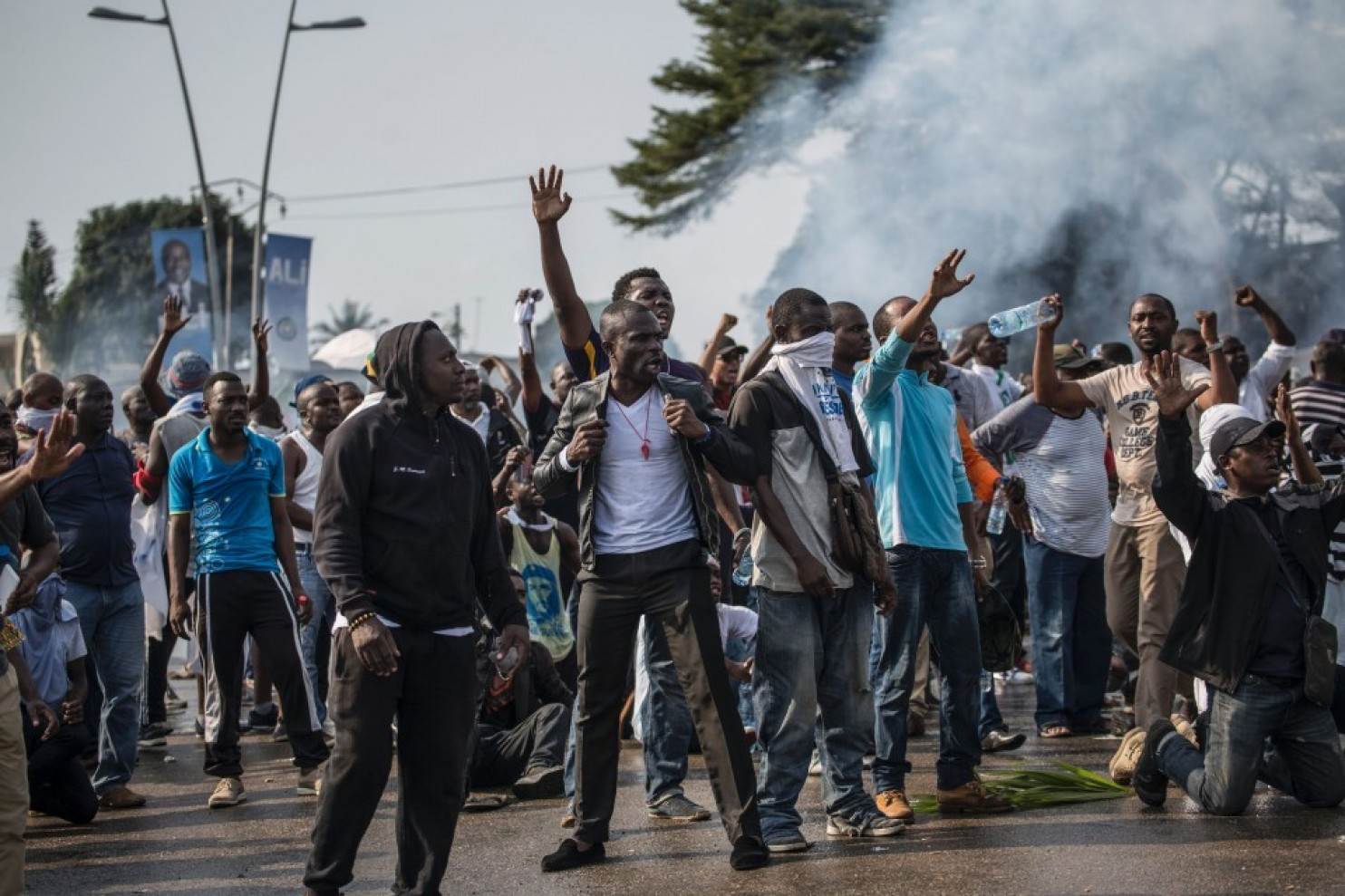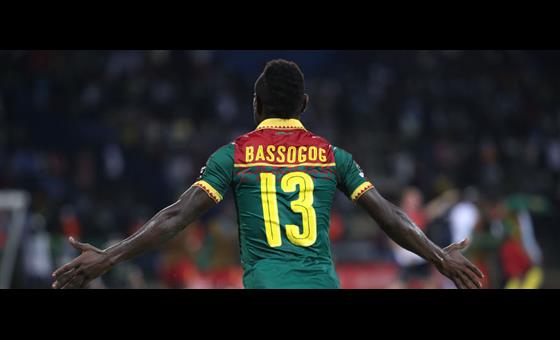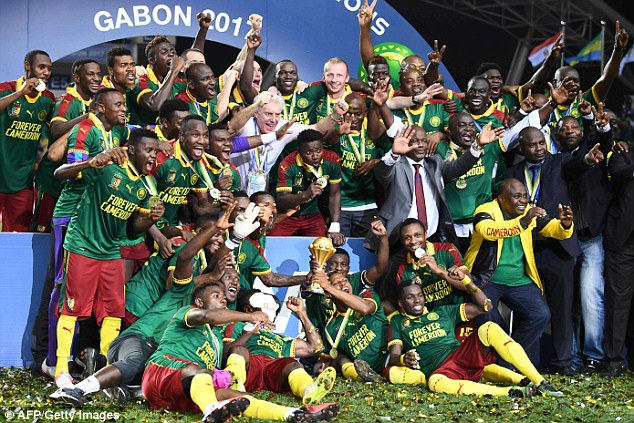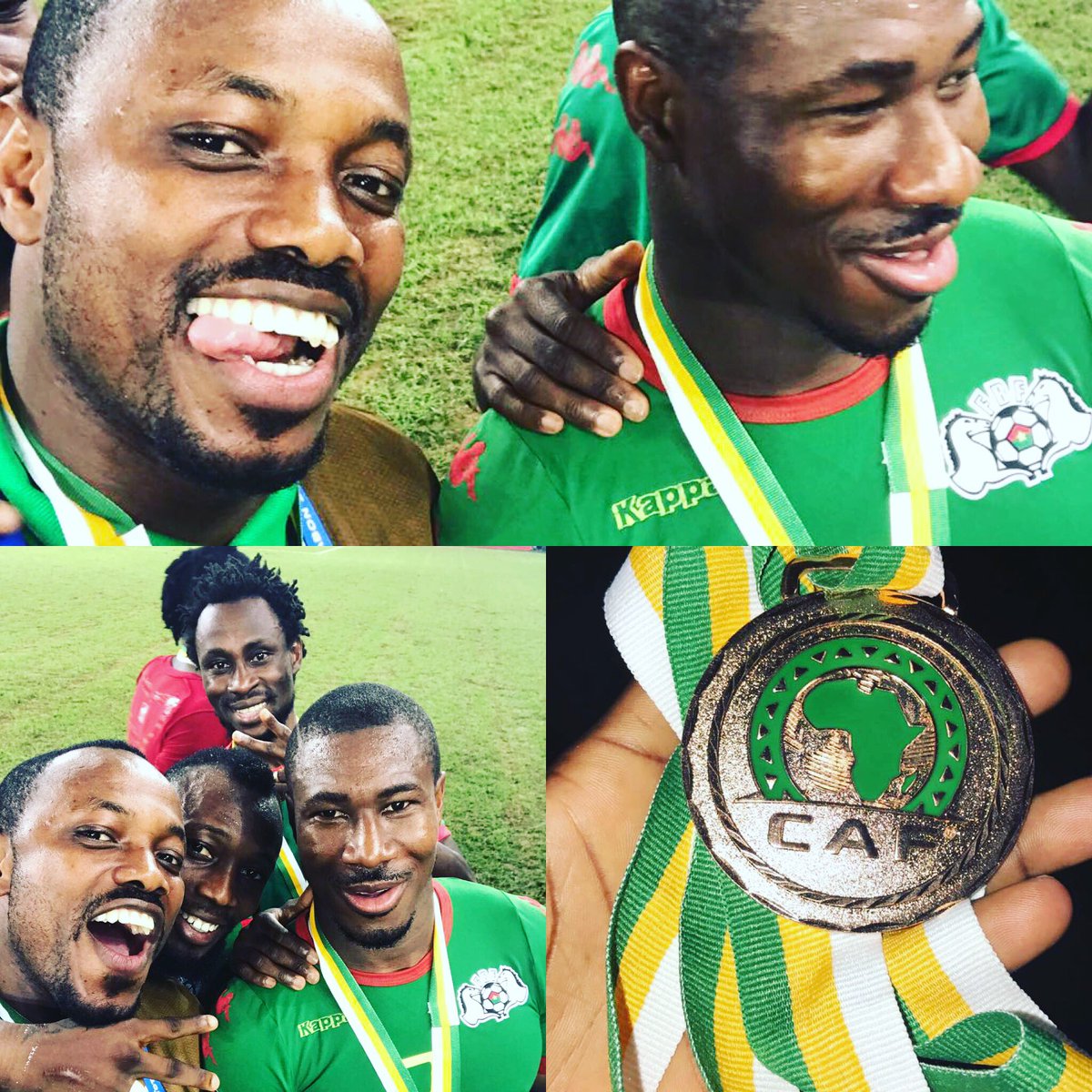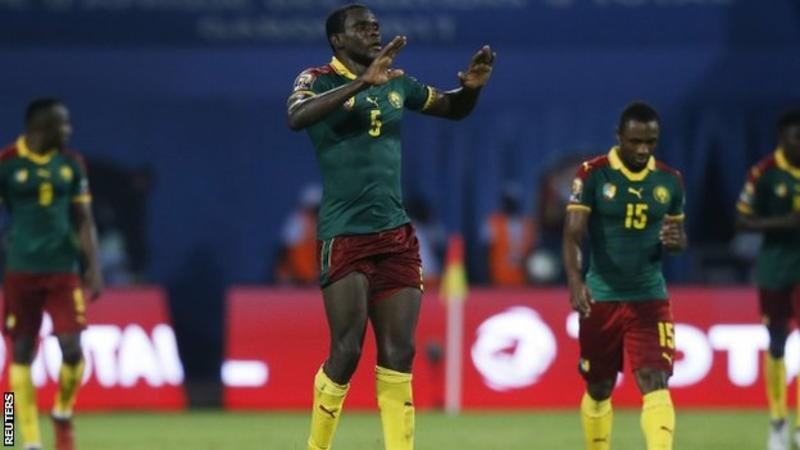There is still an ongoing unrest in Gabon which continues to raise questions over the country’s ability to host the 2017, AFCON tournament. With two months left for the games to kick off from January 14 to February 15, Gabon’s political post-election crisis still ensues with growing concerns, about whether the nation will safely open its borders for the rest of Africa and the Cup of Nations.
Life appears to be getting back to normal with schools and the football league set to resume, but the tension between the ruling party and the opposition remains. Gabon’s disputed presidential election is followed by a series of strikes from main teacher’s union to the domestic football scene.
The local players are unhappy with the conditions they have to play in and the strike has resulted into a postponement of the Gabon league championship from November 5 – 19.
“Our objective remains the same – that’s to say, a strike if the players aren’t listened to,” Remy Ebanega, head of Gabon’s footballer’s union (ANFPG), told BBC Sport.
ANFPG’s demands on behalf of the players are headlined by four issues. But among the issues fronting the strike, is back payment of salaries dating from present day to 2013.
Some league players are citing 11 months of no pay that players from Akanda FC, most affected, protested outside the house of their club president last week. However, the act instead persuaded the president to respond with accusations of trespassing.
Despite a court visit – that turned into a cautionary lesson in proper methods of protesting – the protest drew support from several players in other clubs.
in addition to sorting out pending salaries, ANFPG is asking for a standard contract for players, a charter for professional players and the introduction of a litigation chamber.
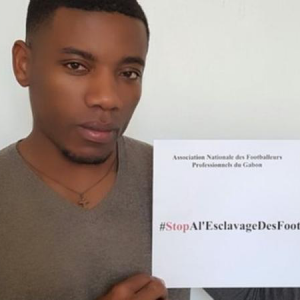
Gabon international, Remy Ebanega, co-founded his country’s footballers’ association (BBC Sport)
But issues in the domestic league will not stand out as much as Gabon’s preparation for 2017 AFCON. Apart from continental glory, the Panthers seek a place among the African teams to qualify for the next World Cup.
But all seems hasty after Jorge Costa was removed as coach of Gabon, moments before playing a World Cup qualifier in Mali on November 12, and hosting the AFCON.
The official website of Gabon’s football federation confirmed Costa’s departure and his replacement in former federation technical director, Jose Antonio Garrido, on a temporary basis.
Costa was reappointed in August after his contract expired in June, with the aim of taking the team to the final of the Africa Cup of Nations. However, a spell of poor results and a nation-wide criticized absence by the former Portuguese player, from the draw for the Cup of Nations in the capital, Libreville, on October 19, may have sparked reasons for his dismissal.
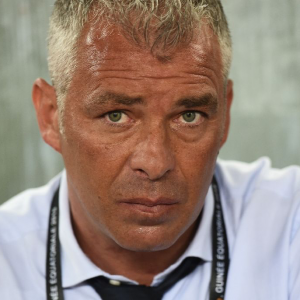
Jorge Costa was replaced as head coach (AFP Photo/Carl de Souza)
In addition to internal conflicts, Gabon’s hospitality during the AFCON will also put the country under scrutiny amidst growing concerns. Ghana has already criticized the facilities arranged to accommodate the visiting nations.
“My worry is with the teams based in Franceville, Port-Gentil and Oyem,” Ghana FA Vice President, George Afriyie, told Joy Sports last month.
“In terms of hotel facilities, I don’t think they meet a four-star or three-star hotel at best, two-star hotel.
“To my best analysis, I think they are below standard. It is not really going to affect us, we just need to psyche our players for the three-week tournament,” Afriyie added.
In addition, two of the expected four stadiums are behind schedule while the largest stadium ever to be designed and constructed, Stade Omnisport, in Libreville, will miss out again on hosting the games. The stadium was not ready either, to host in 2012. The initial plan was to have it ready for bigger matches in 2017, including the opening game led by the hosts.
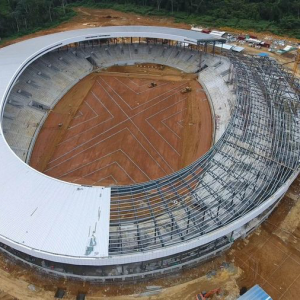
Stade d’Oyem, in Oyem/Ewormekok designed to hold 20,031 is still under construction and expected to be completed in December, 2016. (StadiumDB.com)
What lies ahead, is for Gabon to prove it can host a successful Africa Cup of Nations or risk criticism for poor preparations and security concerns.
The 2017 event will have four host cities – Libreville, Franceville, Port-Gentil and
Featured Photo: Supporters of Gabonese opposition leader, Jean Ping, protest in the capital, Libreville, on Aug. 31. Several of Ping’s supporters are still being arrested as well as journalists who are thought to sympathize with the opposition. (Marco Longari/AFP/Getty Images)
